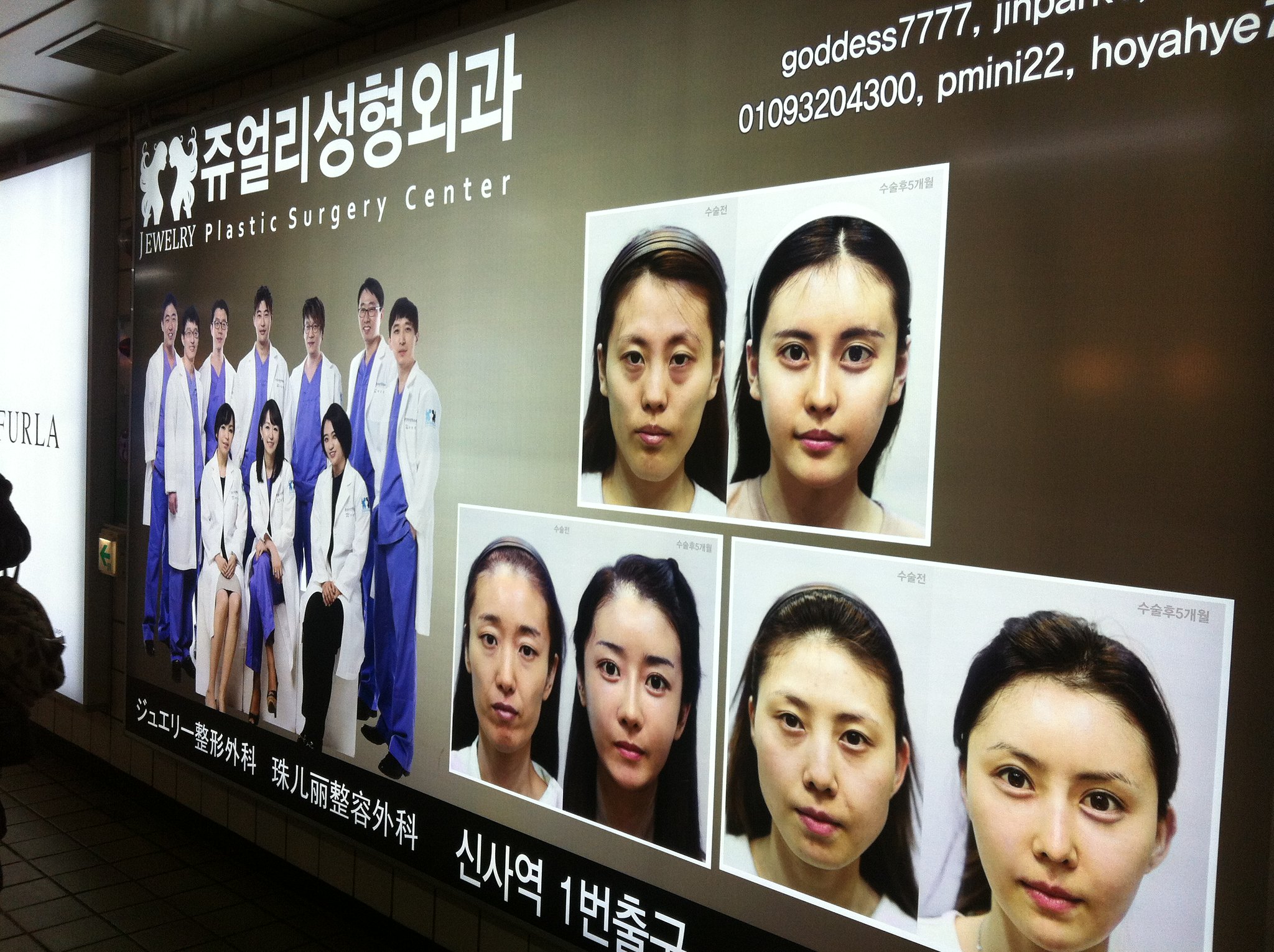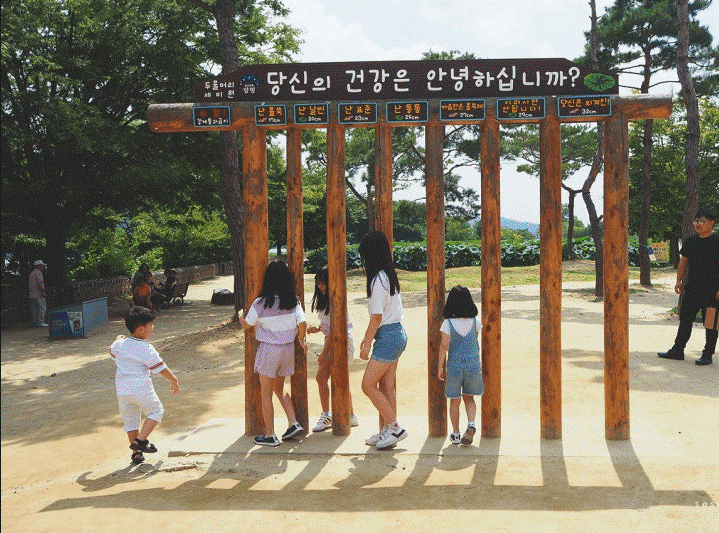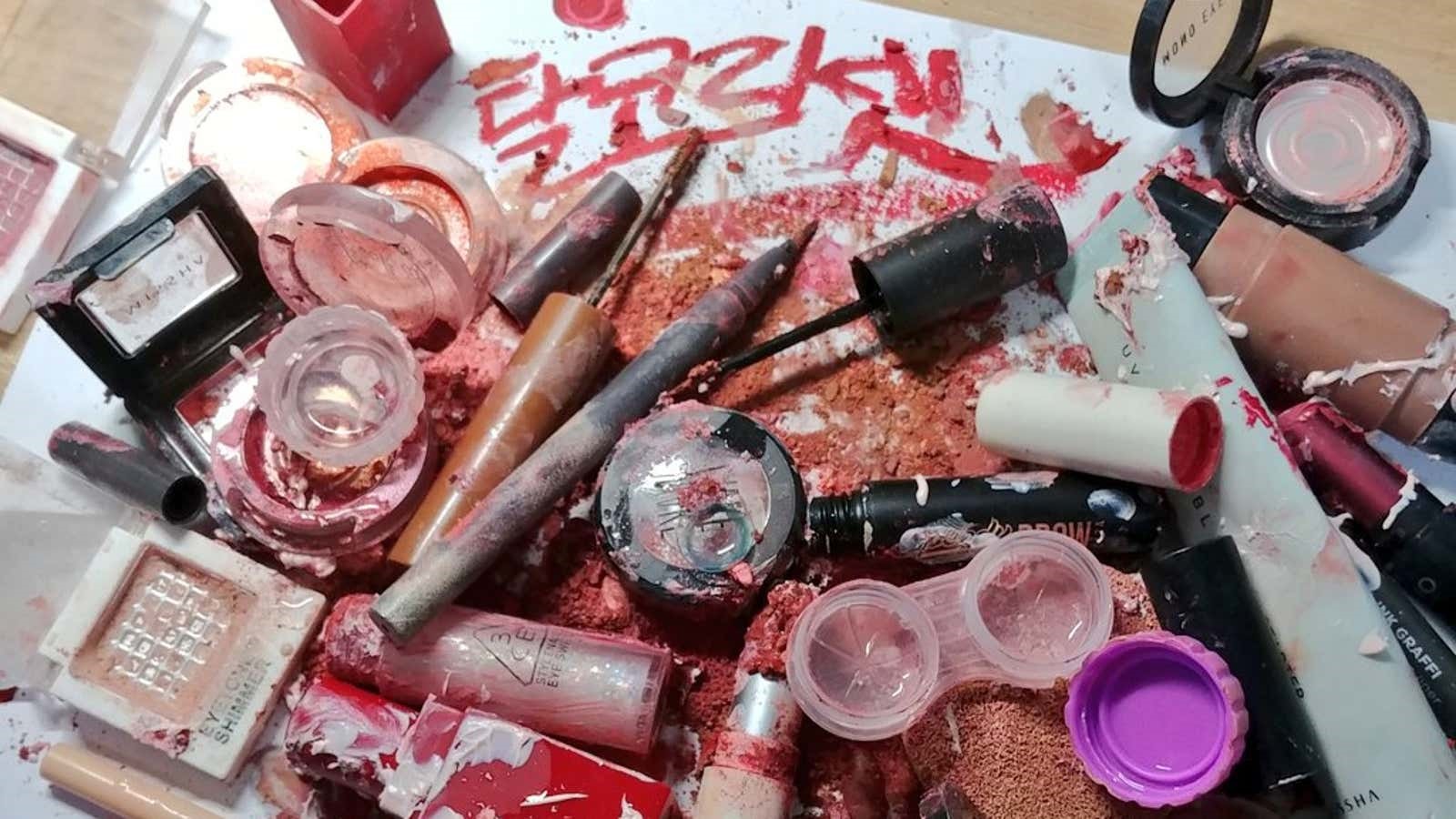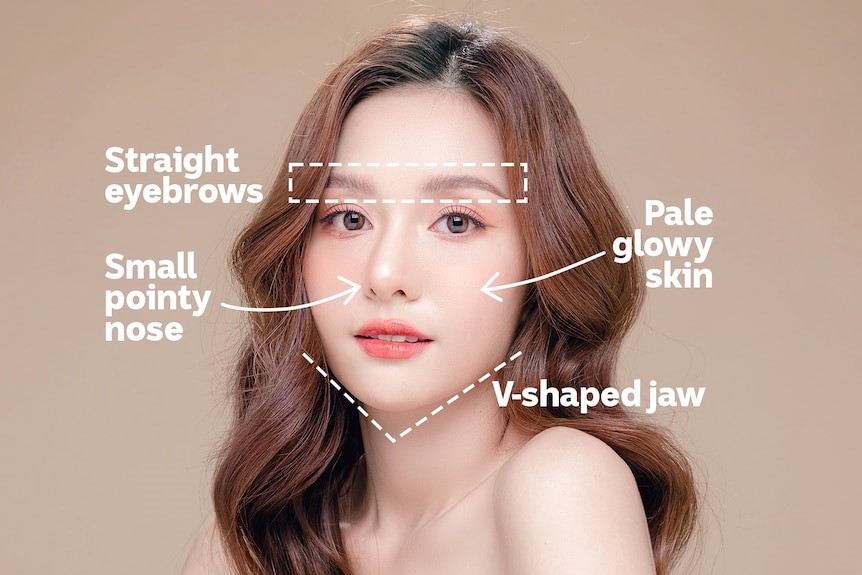By Evi Chrysoheri,
The country that has gained great recognition because of its music and film industry, as well as its culture, is South Korea. Although the well-known k-dramas or our favourite idols have sparked excitement in their new audience, there is a detail that might concern them. The Korean beauty standards, which are promoted by both of these industries and are deeply ingrained in the mind-set of South Koreans, could be considered excessive and borderline toxic. It is true that in every era, country, and even continent, beauty standards shift. For example, in Ancient Greece, it was considered beautiful for women to have a more curvaceous body, as evident by the depictions of Aphrodite, the goddess of beauty. However, what Korean society recognizes as objectively beautiful is something very specific, unhealthy, and often, unattainable.

If someone walks down the bustling street of Gangnam, they will come across clinics for plastic surgery, showcasing before and after images, as well as huge screens with the most well-known idols, advertising beauty products to help you achieve their level of beauty. Plastic surgeries are a very common phenomenon, and it is almost expected by society, especially women more than men, to undergo one. For women, a flawless porcelain skin, round doe-looking eyes, a small nose, along with a slim body sub-110-pounds is considered to be the ideal appearance. For men, a slim or well-toned body and harmony in facial features is socially desirable.
A study has shown that adolescents in Korea struggle with body image issues that can lead students to suicide or unstable mental health. The data come from the 15th Korean Youth Health Behaviour (2019) conducted by the Korean Centre for Disease Control and Prevention. Based on this research, younger students, when asked how they view their bodies, mostly answered that they are thin. However, as they moved to higher grades, the number of teenagers who described themselves as obese increased significantly. Girls exhibited this tendency to a greater extent than boys. Individuals who fell into the “very fat” category seem to face the most serious problems. Even teenagers with average or below average weight considered themselves to be fat and felt they needed to lose weight. These beauty ideals promoted by society, especially by celebrities, have led adolescents, who are prone to idolizing these role models, to develop eating disorders, the most common being bulimia and anorexia.

Another concerning fact is that appearance is an important factor, even for professional opportunities, as employers tend to prefer candidates with better looks. We could say that pretty privilege is galloping in Korean society, and the maxim “your looks are your ability” prevails, as being attractive automatically opens many doors to success. Additionally, it is a given that women, more so than men, will wear makeup because it is considered necessary to be presentable. Women, especially in the workplace, must always be well-groomed. They should not wear excessive makeup, have their hair styled and their clothes must be modest but not old-fashioned.
Thus, the culture of the “bare face” had started even before the coronavirus pandemic, as celebrities wore surgical masks not only to avoid being recognized in public but also to cover their bare faces. This created a trend where people wore masks to hide their bare faces, as it was considered unattractive and showed the individual’s laziness and indifference. The absurdity, we could say, is peaking as even children as young as 5 years old wear makeup and fashionable, almost adult, clothes, a fact that had led to the rapid growth of the children’s cosmetic industry. This reinforces the culture known as “adult children” due to peer pressure and the immense influence of social media and idols have. As a result of all the above factors, body shaming and lookism in social media is so normalized in Korea that people don’t even understand it’s wrong.

Finally, the reaction to this toxicity lookism has brought gave birth to a rebellious movement known as Tal Corset or “Escape the Corset”, which involves women that post themselves on the Internet, shaving their heads, destroying their makeup, expressing their liberation and independency from the cosmetic corset. This feministic movement also opposes the gender inequality that exists in Korea and the alarming increase of sexual abuse. In a country where misogyny and lookism prevail, the Tal Corset attempts to express the difficulties and anxiety that women face, as they live in a society that treats them more as objects of admiration rather than outstanding human beings.
References
- Sein Lee, Dr. Hyeyoung Jo. “Self-perceived Body Image in Relation to Mental Health of South Korean Adolescents”. Journal of Student Research. v 10 (3).
- Beneath the Surface: The Struggles of Dismantling Lookism in Looks-Obsessed Korea. Stanford University. Available here




